Three mothers recount their experiences giving birth under bombs and sirens in Ukraine
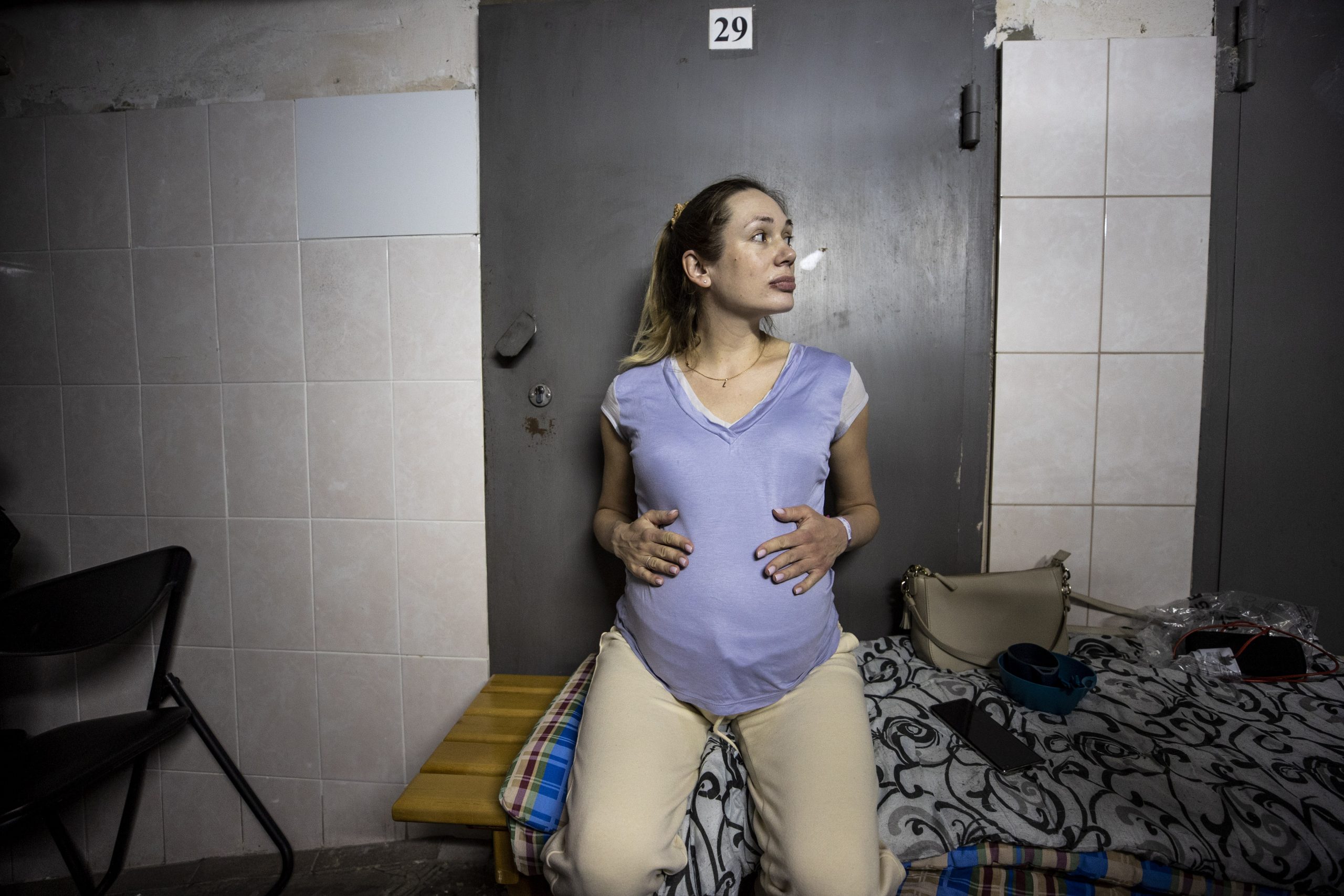

Original words by Iryna Tatarenko and translated by Lina Pilipchuk
Anna and Kateryna both became mothers in the first days of Russia's war against Ukraine. Vladislava is 7 months pregnant. Each of these women were at the epicentre of events on the day of the enemy's attack - in Kyiv, Bucha and Irpin. We asked them to tell us what it's like to feel the joy of motherhood when children's cries and laughter are interrupted by bomb explosions and alarming air defence sirens.
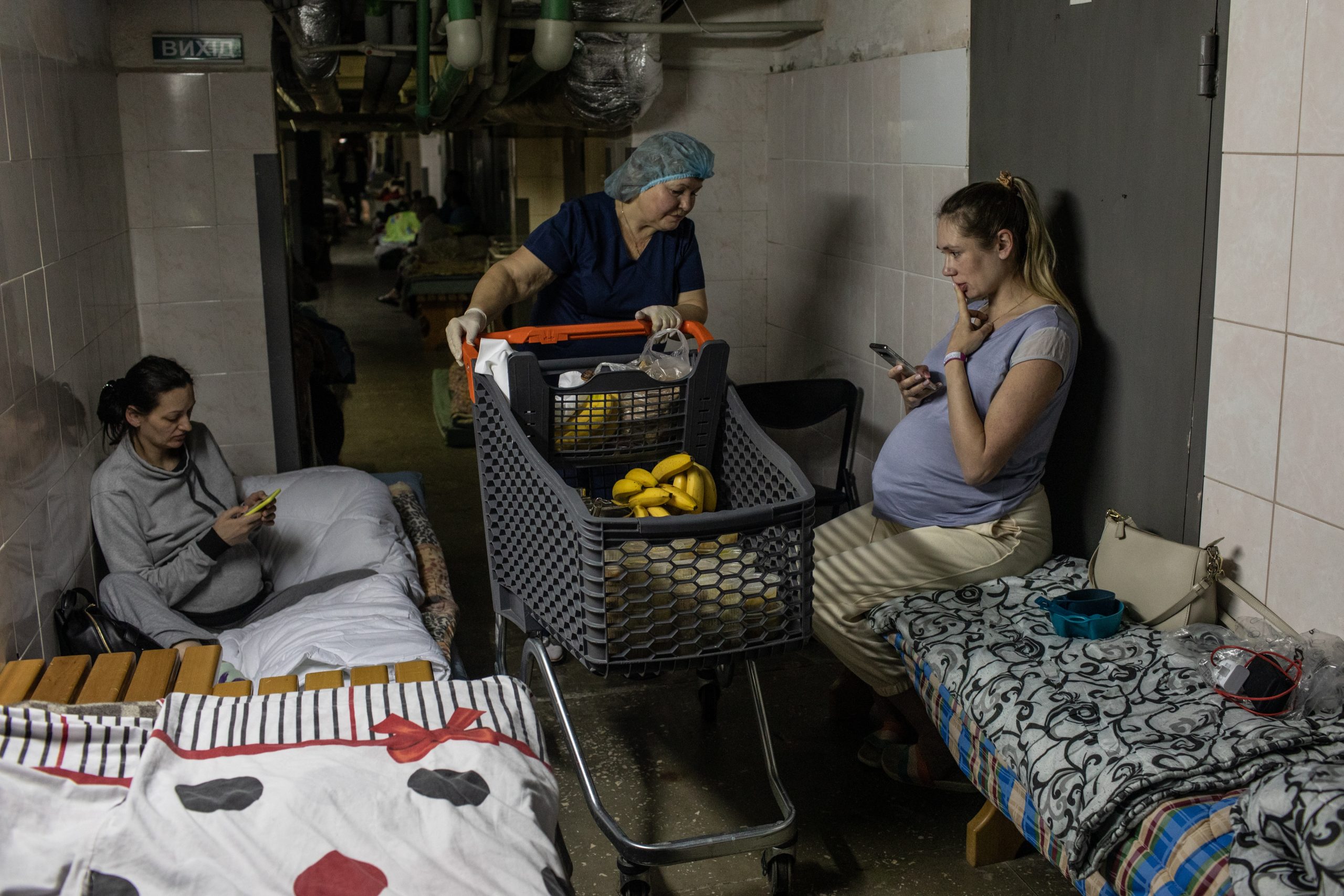
Anna is a lawyer, currently living in Lviv with her 12 day old daughter...
My daughter was born in Kyiv on February 23 by caesarean section. As a family, we joked that we had to give birth in controlled conditions before the war started.
On the morning of February 24, when I was feeding my daughter, I heard explosions, but I couldn't believe that it was actually what I was afraid of. In the evening of that same day, medical staff told us to pack our essentials in an emergency backpack and be ready to evacuate to the bomb shelter if it would be necessary.
On the morning of the 25th, the first siren sounded and we were promptly lowered into the bomb shelter. It was filled with mothers and babies, and the doctors working there provided medical care to women - some were helped with children, others were given painkillers and the most unbelievable were premature babies, who were carried by nurses with life support systems.
That morning we went down to the bomb shelter twice more and between the sirens, my daughter and I were discharged. My doctor was in constant contact with me and helped me in every way possible, because other doctors were not available.
Marie Claire Newsletter
Celebrity news, beauty, fashion advice, and fascinating features, delivered straight to your inbox!
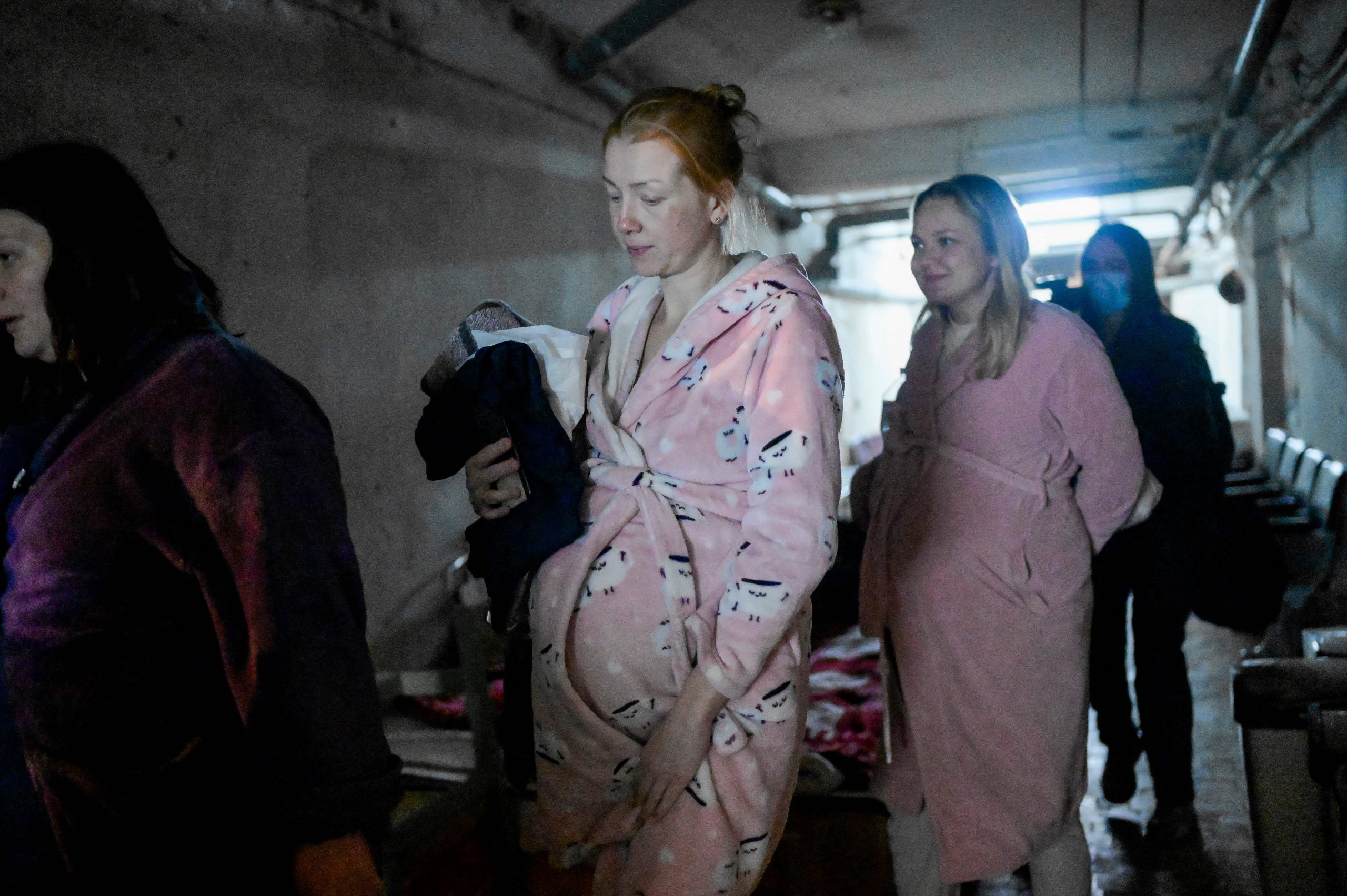
I was overwhelmed and on the sixth day after the birth, my sister and I decided to leave Kyiv with my daughter. We packed all our necessities into two small backpacks and a suitcase. We wanted to take more of course but we understood that it would make our movement much more difficult.
All the trains were completely full and we only managed to get to Lviv on an additional train, which left at 9pm.
As soon as we got on the train, there was an explosion and everyone in the car hit the floor. I was sitting on the floor with my daughter for a long time and was afraid to get up.
However, the train set off and it took us 12 hours to get to Lviv.
It was a long and exhausting journey and the train was full of people, many of whom had children and pets. We stopped for a while to fix the traffic lights, which sometimes were knocked out. They burned out but we still drove.
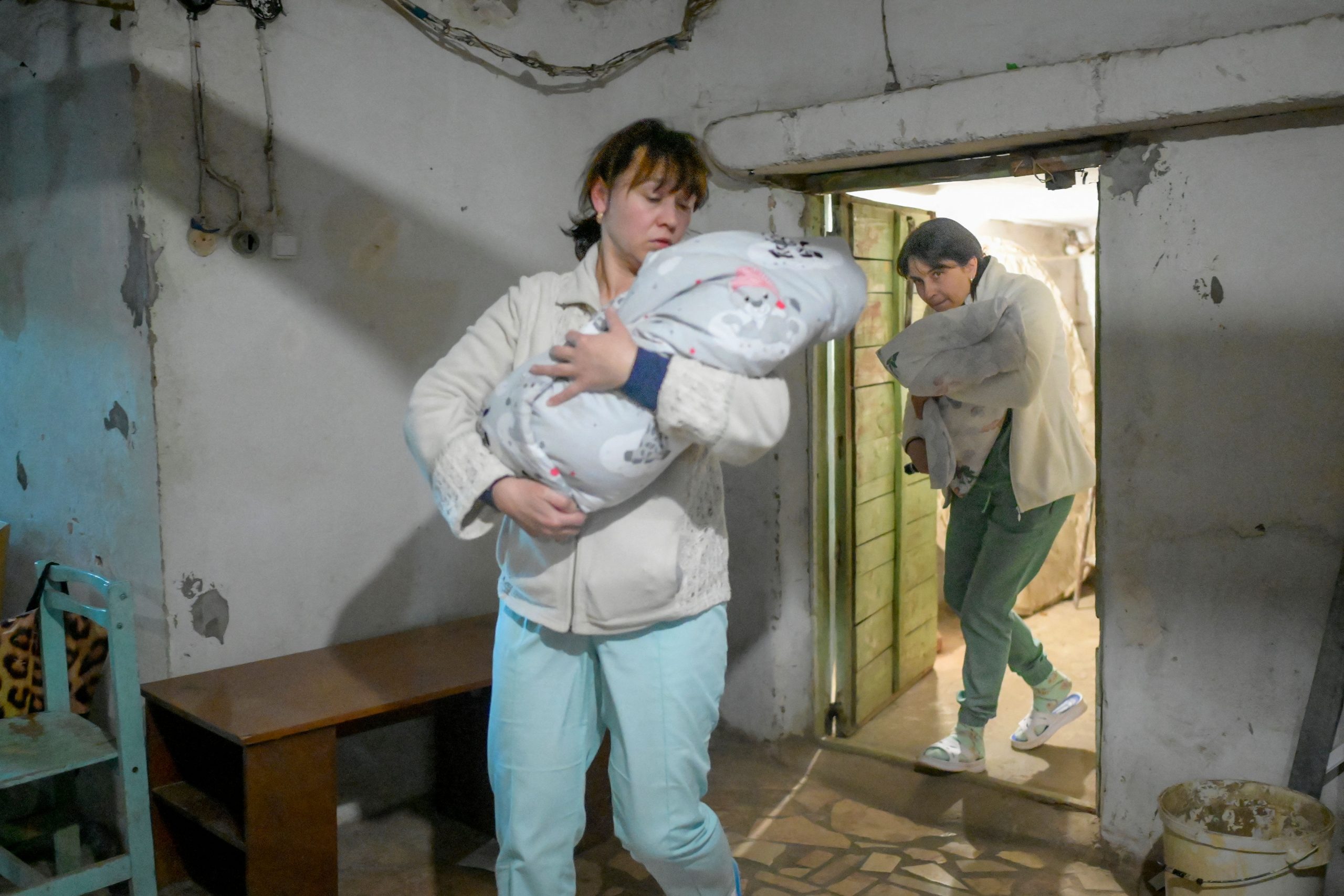
I am currently in Lviv region, where I was given medical care. My stitches were removed, my child was examined and a lot of attention was paid to her. I needed a pram and they even found two.
Our people are wonderful. It is unbelievable that people are willing to do anything to help strangers.
My house was partially destroyed by a shell piece during the war. My 85-year-old father-in-law was trapped there, without light and communication, surrounded by the Russian troops.
Surprisingly, there was a man who was taking children out of a neighbouring country cooperative through the fields yesterday and had one extra seat in the car, so he took my dad. It should be noted that the man did not just take him to Kyiv, he brought him home because he would not have enough time to come back until the curfew. This news was the most wonderful I’ve heard in these 10 days.

Vladislava is a video editor who is 7 months pregnant and currently in Transcarpathia...
I was informed about the war by a work colleague who called me in the morning. The first thing I did was ask my husband to pack up, but I went to work. The news was unexpected - I thought it was only on the verge of a clash in Luhansk and Donetsk regions - I could not believe that this is possible in the 21st century. The day before, I thought it would be good to have a full tank of fuel in the car, but I didn't end up doing that.
I live in Bucha, on the outskirt of Kyiv, where constant shelling has been going on since day one. This is because there are military facilities located both in and around the city.
We did not decide to leave the city immediately - we didn't know which roads were safe, where the occupiers' equipment was and whether there would be enough fuel for the road (there is a problem with it now). We were afraid of being under the fire which we heard constantly from outside the window.
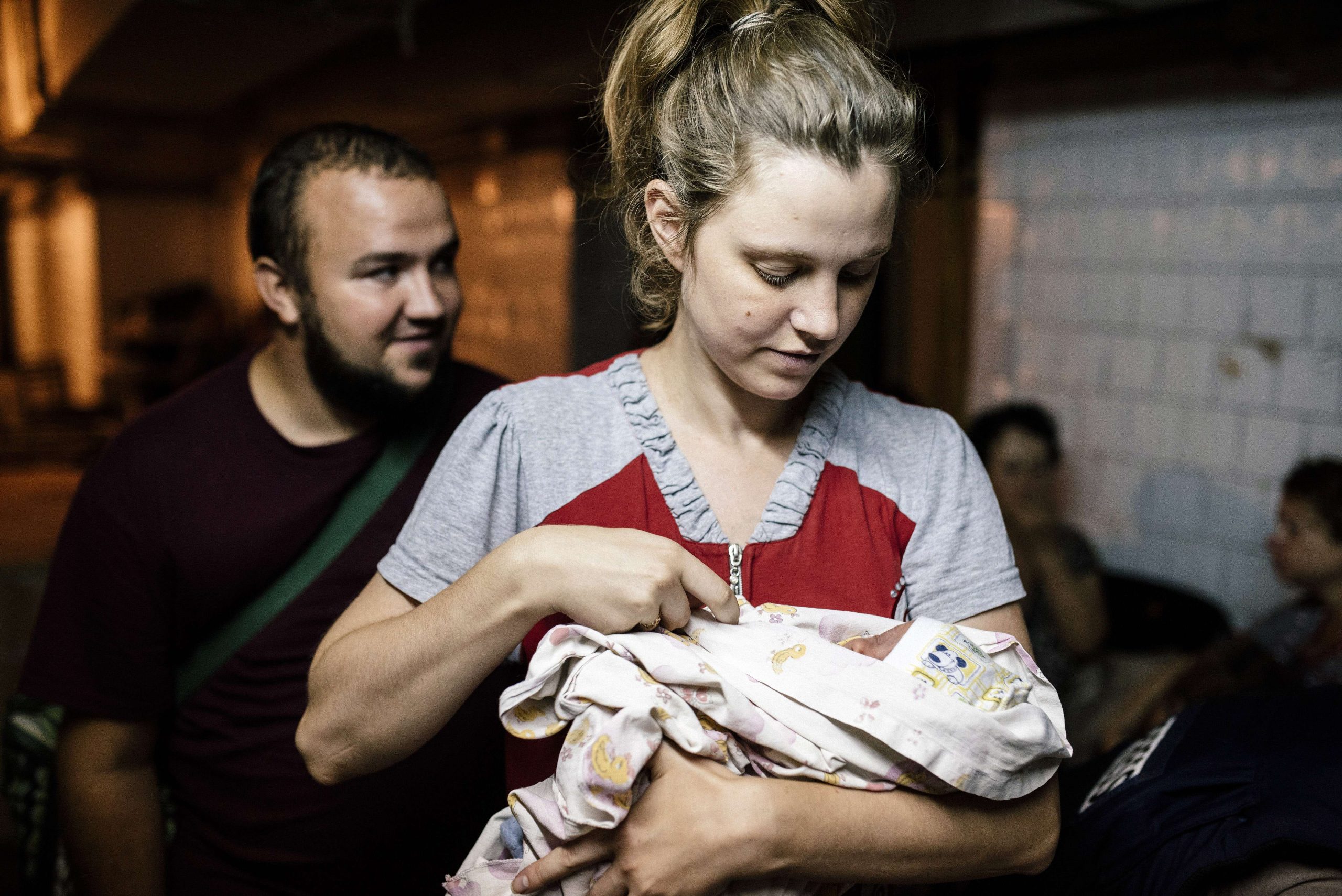
An acquaintance told me about the evacuation train for women and children from the neighbouring city of Irpin, and I decided to use it. It does not take men of military age, so I had to go with just my mother and underage brother.
At the Irpin railway station we were evacuated and almost came under fire, so we had to cross the river on foot over the bombed bridge.
That's how we got to the capital, where Ukrainian soldiers took us to Kyiv railway station. Due to the influx of people, we could not get on the first two trains heading to the Zakarpattia region, so we decided to go in any western direction and accidentally got on the train to Lviv. The situation at the Lviv railway station was even worse. There were no tickets and hundreds of people were waiting in line to board.
We had a plan B - my husband's relatives could take us to any point on our route. There was the curfew, so we stayed with them for the night and continued our journey in the morning. We have now left for the western border and we are in a safe place here. I don't know what comes next - maybe we will have to cross the border.
What worries me the most right now is whether my husband can also leave with us. I don't know if it will be possible at the moment. I look forward to any news from him every day.
People have been happy to help us. My husband’s relatives helped with the clothes - they volunteer at the distribution warehouses of a humanist from Poland. Accommodation was provided by friends of our friends and the Christian community. Some medical clinics have started volunteering and are conducting free examinations and ultrasounds for pregnant women, so we are taken care of. But this is not the same for my husband. He is currently at the epicentre of the fighting - in Bucha. There is no light, water, communication or food to meet basic needs in the city.
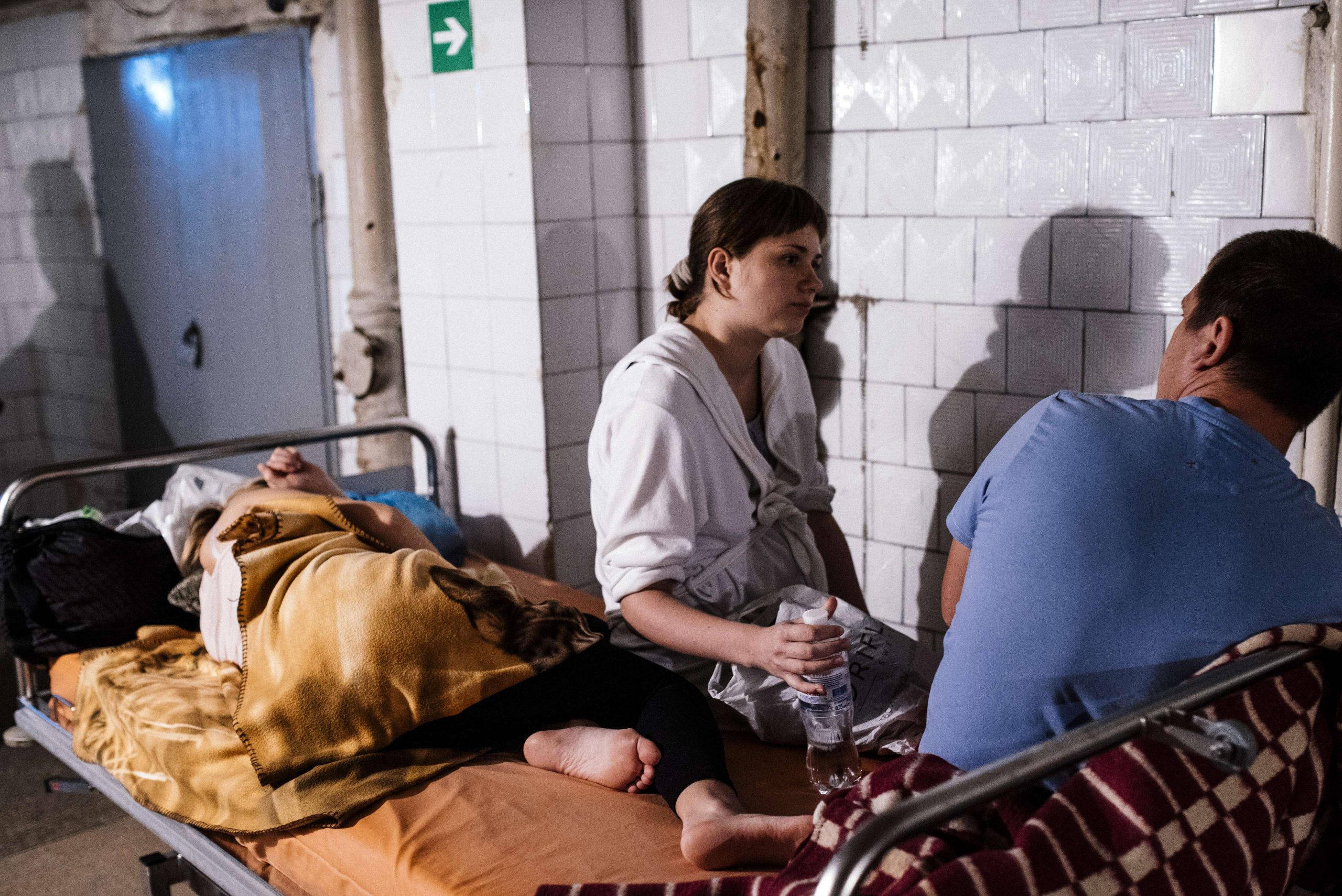
I have got used to the sound of explosions during these past 9 days of constant shelling. In Bucha, we even got used to the sound of constant shootings and weren't woken up by the quieter shots. It was difficult to call them peaceful dreams however, because they were spent thinking about the situation.
During the day we tried to distract ourselves with household chores: cleaning, playing board games and cooking. The last one was especially relevant because we didn't go outside and some of the shops were robbed by looters. So, for the first time we baked homemade bread and it turned out delicious.
Now we are spending our time watching the news. We have almost lost contact with our relatives and we want to know what's going on.
I got a reassuring text from my husband this morning, which said that "everything is okay" and that "the night was quiet". I don't know how quiet it actually was - maybe he's trying to save my nerves and the baby that I’m carrying, but he's alive and that's the only thing that matters.
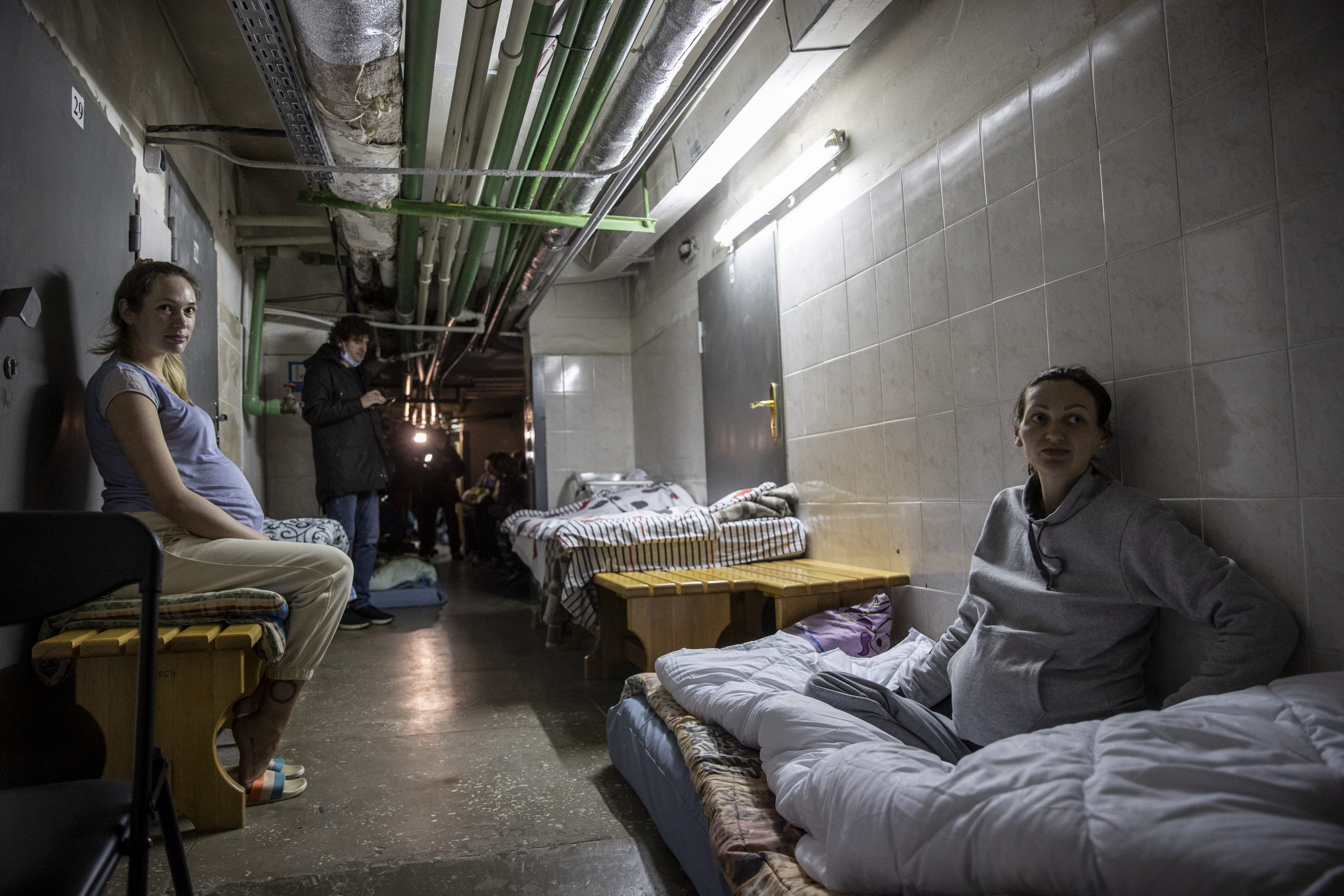
Kateryna is a journalist currently in the Zakarpattia region with her 8-year-old daughter and 6 day old son...
I was so unprepared for the news of the attack, so when everyone started talking about the war in the morning, I couldn't believe it and turned on the news.
The staff at my clinic were asking me how they could work considering the news and I suggested they wait and watch how other medical centres work. I was aware from the news that Russian military equipment was on Ukraine's borders and the probability of an invasion was very high. But I could not believe what was happening.
I didn't hear any explosions until the morning of February 24 - maybe because I live in Irpen near Kyiv or maybe I just slept through them. My father called me that morning and told me in a very serious voice that the war had begun.
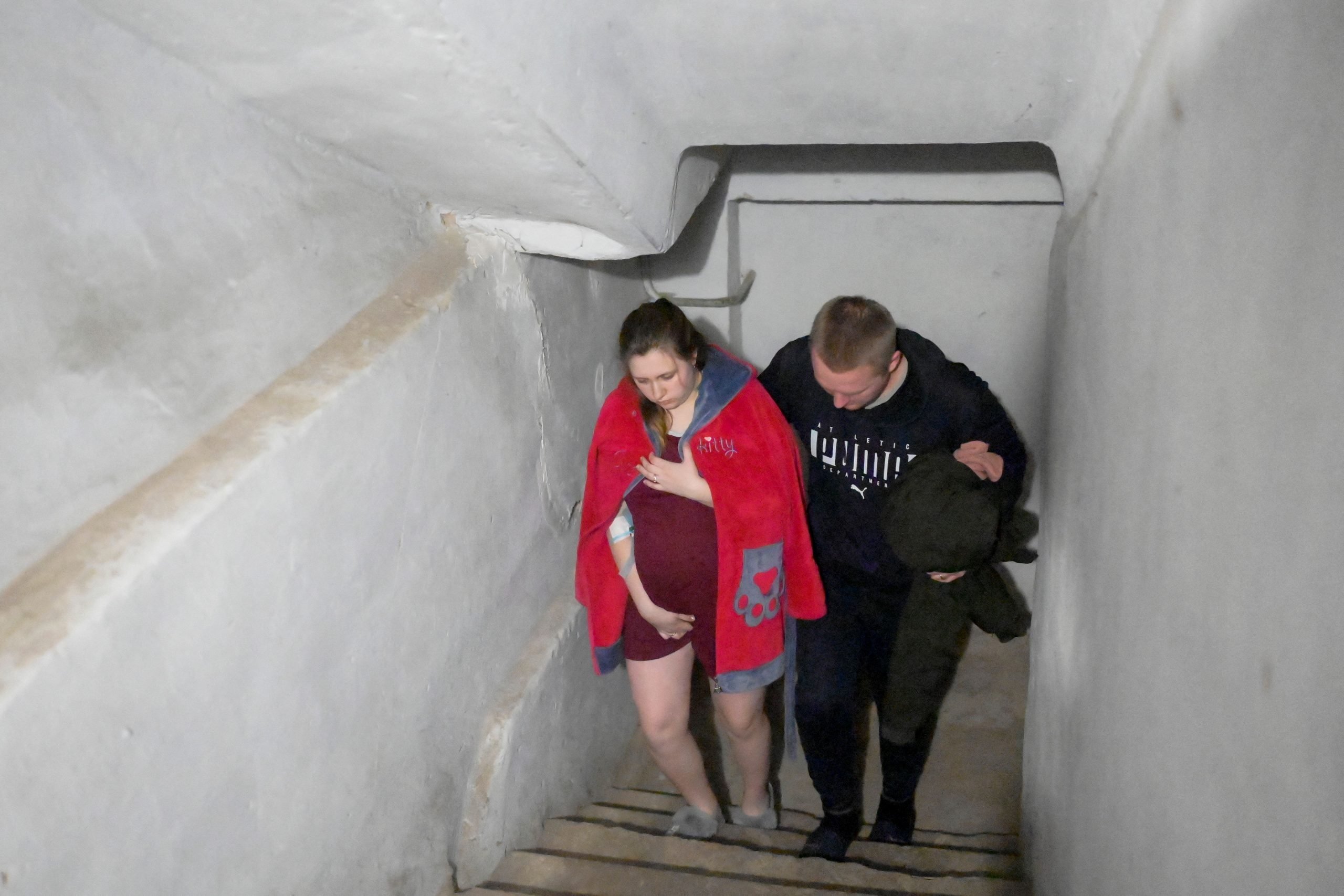
The news of Russia's attack on Ukraine made everything inside me grow cold. I was pregnant and at the exact right time for childbirth. I felt defenceless and helpless. I couldn't move freely - I couldn't run, not even walk the distance. I was left with the feeling that there was nothing I could do - I even felt unable to take care of my eldest daughter. "How will I survive in these conditions?" - that thought stuck in my mind.
On the second or third day of hostilities, I finally realized that this was a real war.
I wondered how and where to give birth. The situation in Kyiv was difficult and the hospitals were receiving the wounded. Maternity hospitals on the outskirts of my city do not meet general standards and it's no secret that they are not in good condition. I was even thinking about giving birth at home and looking for midwives who work online. But my doctor convinced me that it was dangerous because of the possibility of bleeding.
I decided to go to Kyiv in the end. I didn't wait until the birth started, and was in the hospital for a while prematurely. It was scary and I knew they could start shooting at any moment. It happened on my way, but I was lucky to get to the hospital safe and sound, where my baby boy was born.
My family drove 8 hours to my maternity hospital from Irpen to Kyiv under gunfire and explosions (it would take about an hour at a peaceful time), and I was very worried while waiting for them. My whole family was welcomed into the maternity hospital and my relatives were provided with a separate room where they could spend the night with two dogs (they are quite large in size) and a cat. We couldn't leave them because we had no idea when we would be able to return home. We left the maternity hospital for Western Ukraine and I think it is quite safe here.
I am watching the news constantly. There was a time when I didn't do anything at all apart from scroll through the news feed. Especially when I was in the maternity hospital, because all my relatives stayed in Irpin, as well as my 8-year-old daughter. Now we are all together.
I am closely watching what is happening in Kyiv and Irpin, because my soul and heart have remained there. I even feel a little bit of a traitor that I'm safe here when other people that stayed there aren't. Some of them just couldn't leave because it was dangerous even during the evacuation - and I can't help them.
The air alarm sounds to me even now in some outward sounds. If someone touches something or the door slams, it seems to me like an explosion.
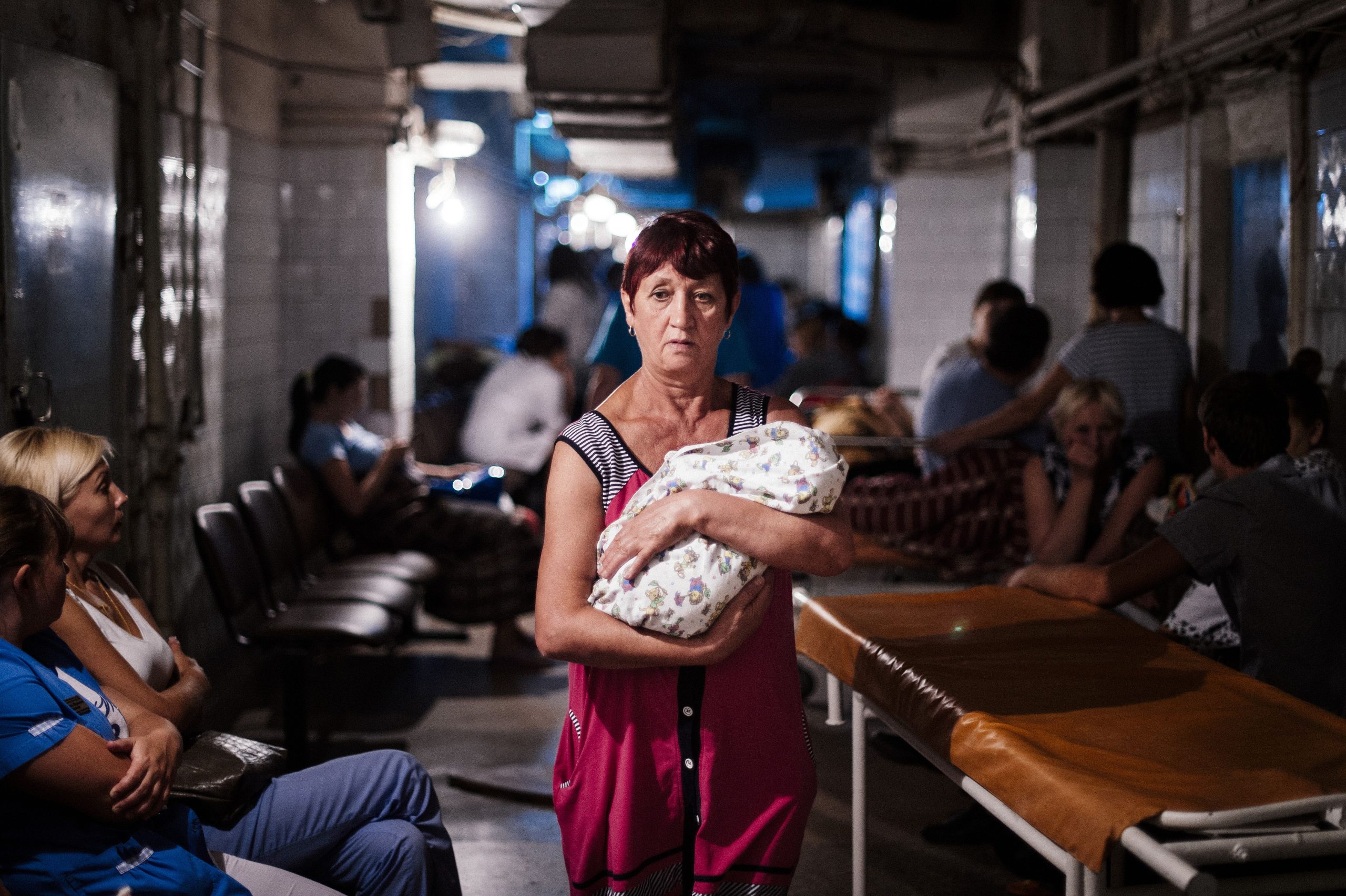
It is the unity of the people I see around me that helps me not to lose hope. I saw with my own eyes that there are a lot of people with big hearts. My neighbours from Irpen who came to the bomb shelter and took care of my family and people who were on duty at night in my house.
War makes us all defenceless and exposes our humanity. My consolation is the birth of a son, because it is a confirmation that life goes on no matter what. The baby needs a lot of attention - he needs me in a good mood. I look at him and it gives me faith that everything will be fine - that one day it will all end and we will be able to return to my hometown. I really want to return to my home, which we decorated with love.
Here's how you can support people in Ukraine right now.
*This article was originally published on 10 March 2022

Jenny Proudfoot is an award-winning journalist, specialising in lifestyle, culture, entertainment, international development and politics. She has worked at Marie Claire UK for seven years, rising from intern to Features Editor and is now the most published Marie Claire writer of all time. She was made a 30 under 30 award-winner last year and named a rising star in journalism by the Professional Publishers Association.
-
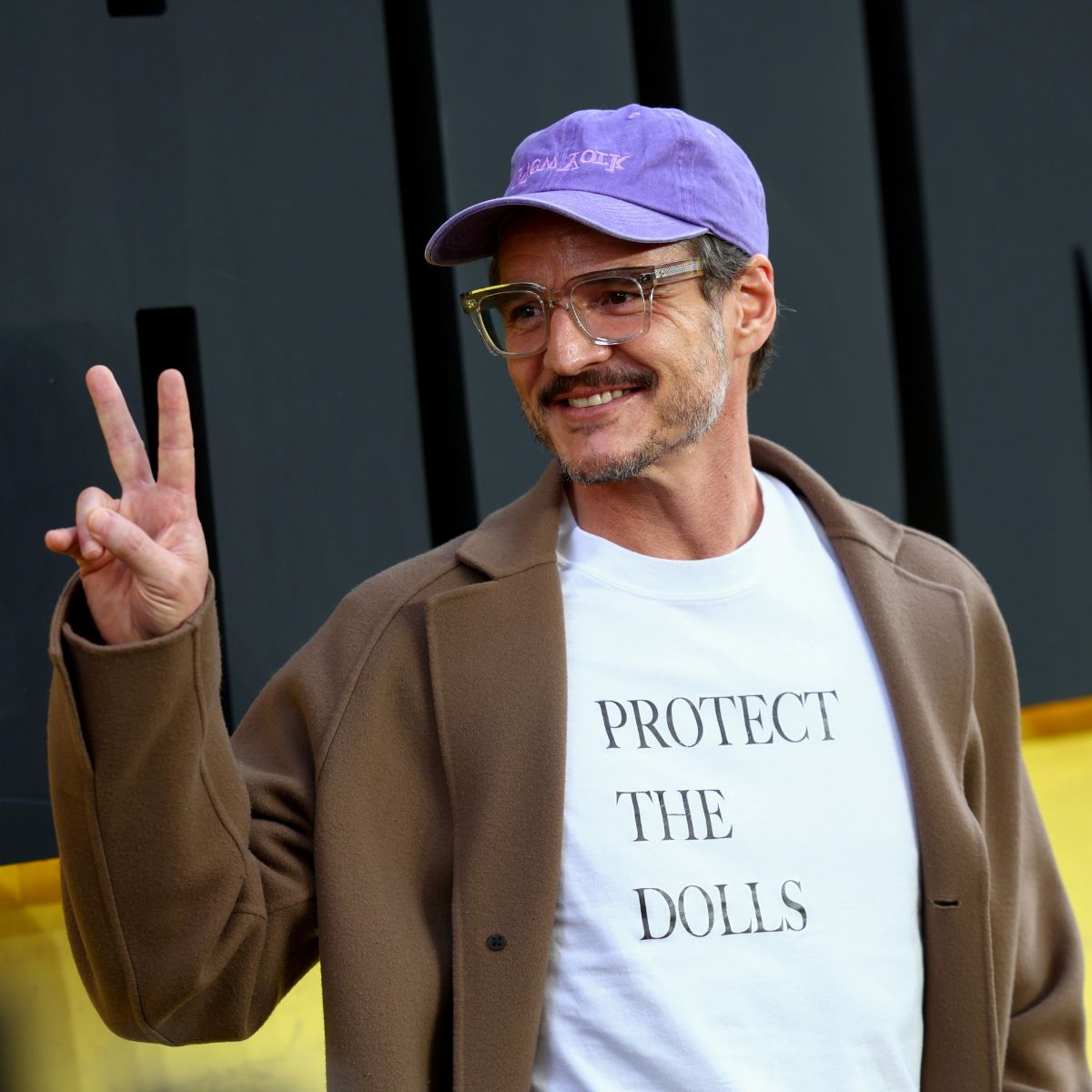 How the slogan t-shirt became this season's must-have - and why it's more than just another trend
How the slogan t-shirt became this season's must-have - and why it's more than just another trendNot just another Nineties throwback
By Clementina Jackson
-
 How are Trump’s tariffs affecting the fashion industry?
How are Trump’s tariffs affecting the fashion industry?The fluctuating situation in the US is having very real consequences
By Rebecca Jane Hill
-
 Here's every character returning for You season 5 - and what it might mean for Joe Goldberg's ending
Here's every character returning for You season 5 - and what it might mean for Joe Goldberg's endingBy Iris Goldsztajn